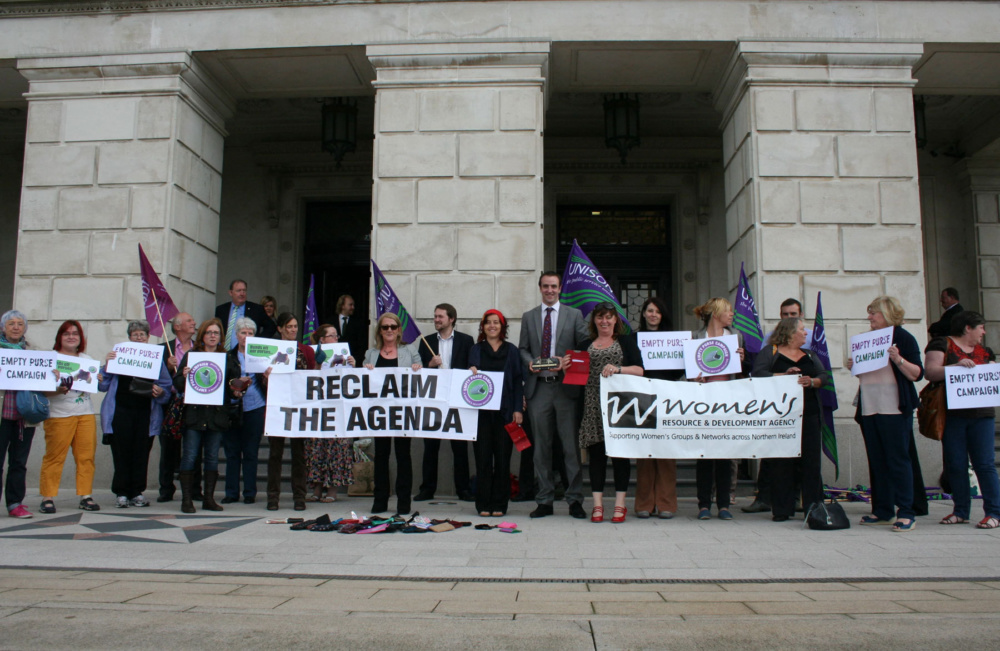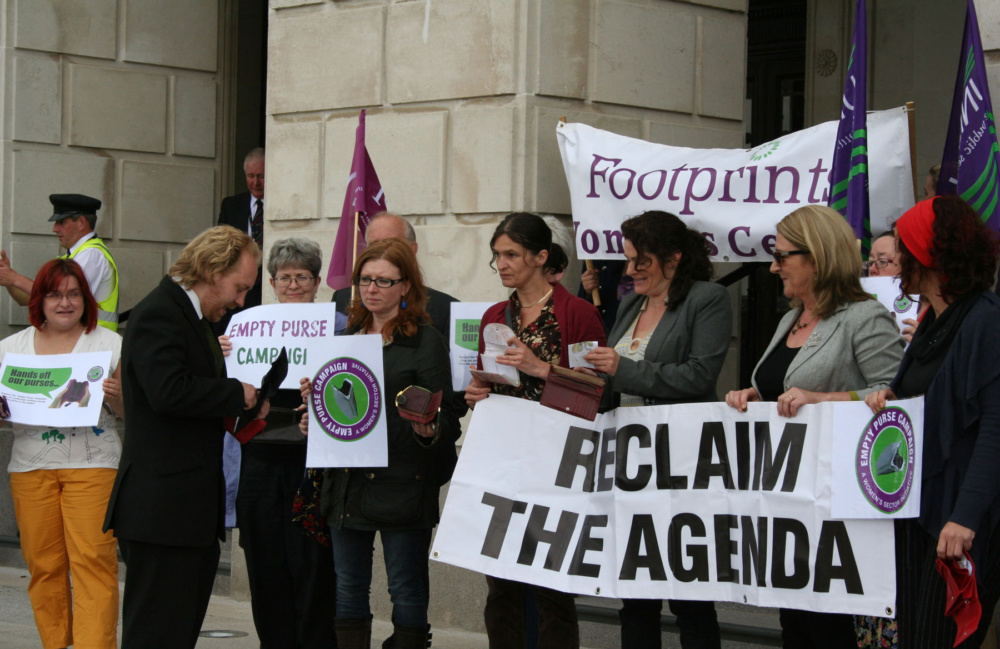The context for feminist organisations and women’s groups in Northern Ireland contrasts significantly with that experienced by sister organisations across other regions of the United Kingdom and the Republic of Ireland. Almost 20 years on from the 1998 Peace Agreement, women in Northern Ireland are still pressing for change in their economic, social, political and cultural status post-conflict.
Given the particular circumstances of Northern Ireland, where the formal institutions of government have not always functioned, there have been some opportunities for feminist organisations directly to contribute to improving gendered analysis in policymaking. Initial attempts include a Gender Equality Strategy created in 2002. The Northern Ireland government initially engaged with the women’s movement and other civil society organisations. However, these efforts were inconsistent, leaving feminist organisations and women’s groups to seek change and influence government from a distance.
Fighting austerity
While the Northern Ireland government is devolved with some control over its spending, it was still hit by the austerity policies introduced by the UK government from 2010 onwards. In 2011 the Women’s Resource and Development Agency published an influential report, ‘The Northern Ireland Economy: Women on the Edge? A Comprehensive Analysis of the Impact of the Financial Crisis’. This report describes how the position of women was ignored after the 2008 financial crash and in subsequent government policy responses. Just as elsewhere in the UK, women bore the brunt of public spending cuts.
Seeing little institutional response to their plight, women were galvanised. The Northern Ireland Women’s Budget Group (NIWBG) was established in 2011, inspired by the work of sister budget groups elsewhere in the UK. Lynn Carvill, a member of the NIWBG, attributes the clear and disproportionate impact of welfare reform policies on the financial situation of women as the impetus behind forming the budget group.
The Empty Purse Campaign
The Northern Ireland Women’s Budget Group focused on a specific policy proposal that would have a major effect on poorer women’s incomes. This policy was Universal Credit, which combines several social security payments, such as housing support and money for children, into one monthly payment. The policy was developed by the Westminster government in London but would be rolled out in Northern Ireland too. Only one Universal Credit payment could be made per household to a nominated person.
Working with other feminist and women’s organisations, the NIWBG created the ‘Empty Purse Campaign’ to challenge the Universal Credit payment to a nominated person in the household. They were concerned that ‘nominated person’ equated in perception and reality to being a male ‘head of household’. Women mobilised against this potential transfer of resources from women to men. These were arguments for women’s economic autonomy fought and won in decades past.


